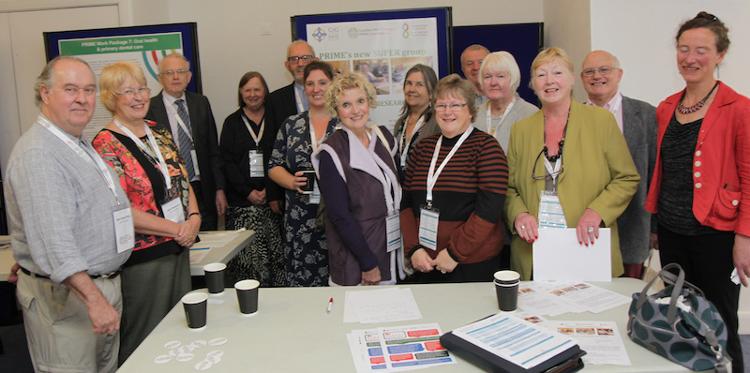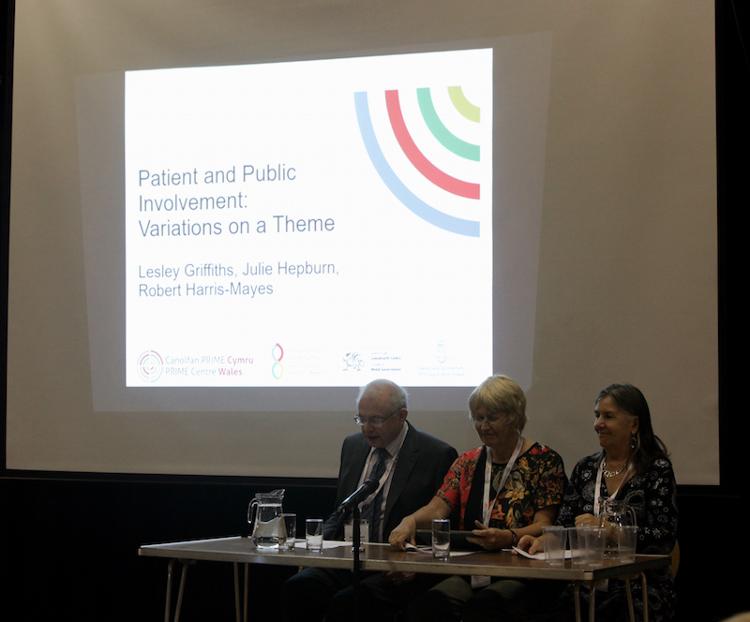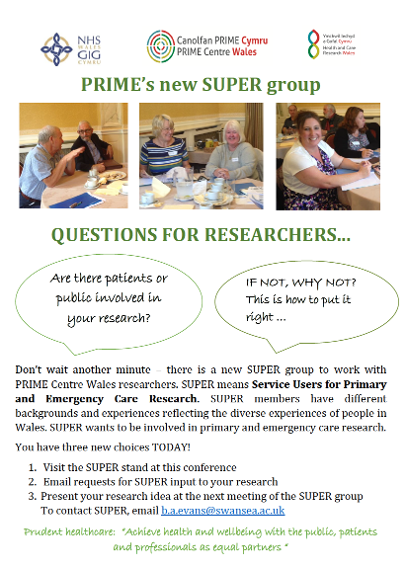SUPER group – update of activities
22 February 2018
The SUPER group of patients, carers and public members has begun working with PRIME researchers. Members contributed comments and advice on four research proposals presented by researchers at a recent SUPER meeting.
SUPER stands for Service Users for Primary and Emergency care Research. The group's remit is to support PRIME Centre Wales. Members provide lay perspectives on health care services and managing health care needs to researchers who are developing, conducting and disseminating research about primary and emergency care services.
Their contributions strengthen the relevance, quality and dissemination of research on these topics. The group includes people with different backgrounds and experiences to reflect the diverse perspectives of people who live in Wales. The group holds meetings with researchers and also responds to email requests for feedback if research deadlines require input between face-to-face gatherings.
The purpose is to enable public members, patients and carers to contribute to research development, from the earliest opportunity and through the process of preparing and submitting a research funding application. Effective public and patient involvement is required by most organisations funding health and care research and is considered best practice because it increases the relevance, quality and accountability of research.

SUPER members at their poster stand, where information about the group and opportunities for public and patient involvement in work were available to conference delegates at the PRIME Annual Meeting 2017.
At their meeting in November 2017, SUPER members contributed to the following topics presented by researchers:
- identifying people at risk of depression in order to offer social prescribing
- infant feeding and managing an Autoimmune Rheumatic Disease
- paramedics providing house calls for general practices
- supporting people who frequently call the 999 ambulance service
Researchers said after that they found the process very helpful. The discussions highlighted items not previously considered and practical considerations which they felt could strengthen the focus of their studies.
Dr Carolyn Wallace, Lead for Social Care in PRIME, based in the University of South Wales said: ‘Thank you very much for the opportunity to speak with the group. I have found the comments and the communication since the meeting to be extremely helpful. I would be happy to return to provide an update.’
Dr Denitza Williams of Cardiff University said: ‘Thank you very much for the opportunity to present at the group and for leading on the PPI engagement! They really were a very engaged group and I made some useful links.’
SUPER members get involved with research because they have experiences which they want to use to improve future patient care. Meeting researchers and commenting on proposals is rewarding, says member Robert Harris-Mayes.
‘I find that it is always interesting and enjoyable to share with researchers my experiences as a patient and carer. In doing so, I am sure that it leads to better research for the benefit of everybody.’
This flier was designed by SUPER members to raise awareness of the group among PRIME researchers

SUPER members Lesley Griffiths, Julie Hepburn and Robert Harris-Mayes presented a discussion session about patient and public involvement in research, at the PRIME Annual Meeting 2017.
Other activities which members have been involved with include:
- Presenting at the PRIME annual meeting - three members reflected on their experiences of being involved in research, and how processes can be followed to support active involvement from people with different backgrounds and experiences
- Preparing a flier about SUPER for distribution to researchers
- Contributing to two proposals for themed meetings about developing research ideas and working with service commissioners and providers to disseminate findings in order to improve patient care.
For more information or to work with SUPER members at a future meeting, contact Dr Bridie Evans at b.a.evans@swansea.ac.uk.


